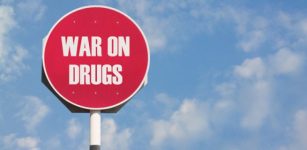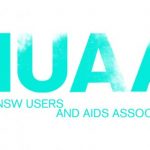The Implicit Racism in the War on Drugs

Drug prohibition has been a global phenomenon for nearly a hundred years now. The 1925 Geneva Convention imposed international restrictions on the production and use of opium, coca and, as a late addition, cannabis.
However, the war on drugs was declared by US president Richard Nixon in June 1971. This led to an intensification of drug law enforcement, which has involved mass incarceration and military interventions.
At its inception, the drug war had a racist agenda. In a 1994 interview, John Ehrlichman, a Nixon advisor, revealed that the motivation behind the war was to channel white middle-class fear of African Americans and left-wing protesters into a hatred of their perceived drug use.
Bias in the criminal justice system
This has led to a situation where large numbers of African Americans have been imprisoned for drug-related crimes, despite research suggesting that African Americans are no more likely to use or sell drugs than white Americans.
As incarceration rates for drug crimes soared in the States, they remained stable for non-drug offences.
The racist underpinnings of the drug war were demonstrated by, among many other things, the fact that crack cocaine attracted harsher penalties than powdered cocaine, although the two are essentially the same drug.
Crack has more of an association with the black community, whereas powdered cocaine is associated with whites. President Obama rectified this situation in August 2010, when he signed a law addressing the disparity in penalties.
The good old boys
Although the Obama administration introduced policies designed to reduce penalties for non-violent drug offences, the current US president Donald Trump has returned to the old white man’s drug war rhetoric.
Trump began his presidential campaign calling for a border wall with Mexico to keep out immigrants bringing in drugs and crime. The US president has threatened to deport undocumented immigrants, declaring that he would be “getting drug lords out.”
And Trump’s appointed attorney-general Jeff Sessions wants a return to the national crime strategy of the 80s and 90s, which was the peak of the drug war and led to the mass incarceration of people of colour. Sessions is a good pick for the advancement of racially motivated policies, having previously been deemed too racist to become a judge.
Australian prohibition
The first drug law in Australia – the Opium Duties Act 1857 – was an overtly racist policy against Chinese people. It imposed a duty on opium and a number of subsequent laws levied further prohibitive taxes on the drug.
These laws are said to have been designed to keep Chinese immigrants out of the country, rather than the drug itself. The law only applied to smokable opium, which was predominantly used by the Chinese people. Ironically, this was a habit introduced to the Chinese population by the British, during two mid-17th century Opium Wars.
At the same time, Australians were amongst the biggest users of opiates in the form of patent medicines. However, Australian laws did not criminalise these medicines.
Indeed, in the early 1950s, Australians were the biggest per capita users of prescription heroin in the world, prior to it being criminalised in 1953.
The drug war in the Australia
Gino Vumbaca is the president of Harm Reduction Australia. He told Sydney Criminal Lawyers® that in our country, the racist implications of the drug war are not as obvious as in the States, although they do exist.
“Here, if you are young and poor then you tend to be targeted more by the police,” Mr Vumbaca said, adding that this means you get “a high-level of Indigenous people,” along with newly arrived immigrants,” being subjected to police scrutiny.
Mr Vumbaca is involved with Just Reinvest NSW: an association which aims to address the issue of Indigenous incarceration. At present, Aboriginal and Torres Strait Islanders account for 25 percent of the NSW prison population, but only comprise 2.5 percent of the overall population.
Many Indigenous people have been incarcerated for minor drug-related crimes. Many more have been locked up for alcohol-related offences.
Police targeting the disadvantaged
Those who do not have the means to live, or do their business, behind closed doors tend to be the ones focused upon by police, Mr Vumbaca points out. These people are vulnerable and often young.
According to Vumbaca, most citizens break the law at one time or another, whether it’s by taking drugs, or breaking the road rules. However, “it’s the policing activity that determines whether they get caught.”
If police are focused on drugs, or on “areas where there are high-levels of racial minorities, than you are going to get more people” from these backgrounds “coming before the courts and the police,” Vumbaca explains.
The 2013 statistics on NSW police drug detection dog searches demonstrate this point. A passenger getting off at Redfern station was six and a half times more likely to get searched, than one at Central, the next station along.
A primary difference between these two populations is that Redfern has large populations of Aboriginal and young people.
On the global scale
But the prejudices of the drug war don’t just operate internally within national borders. On the international level, they function along the lines of old colonial ties.
The cultivation of opium poppies has become an increasingly important industry in Afghanistan since the time of the Soviet invasion in 1979. As laws and international protocols proscribe the production of opiates, impoverished growers are forced to sell their product on the black market.
The country’s opium production now accounts for over 90 percent of the world’s illegal heroin.
However, opium cultivation in Tasmania is big business. This Australian state – which has no traditional background in opium production – now grows up to fifty percent of the world’s legal opiates.
Tasmanian farmers are legitimate business people, producing an important pain relieving medicine. Yet, they are producing exactly the same crop that Afghan farmers are condemned for growing. And it’s the global system of prohibition that allows for a situation where western farmers can turn a profit growing a plant that eastern ones are criminalised for.
“If you were a poor Afghan farmer trying to raise six or seven kids, and you can get a guaranteed price for poppy crops, are you really going to try and grow maize in those hills?” Mr Vumbaca questioned, adding that maize is a crop that farmers in Afghanistan have no background in.
A neo-colonial war
The United States led the push for prohibition in the 20th century, beginning with the establishment of the first international drug control treaty: the 1912 Hague International Opium Convention. And as already mentioned, the Nixon administration subsequently led us into the war.
The US government often roped developing nations into the drug war, offering aid conditional upon them implementing harsh restrictions on drugs.
Under Plan Colombia, the Clinton administration provided vast sums of money to the Colombian military and police on the proviso that they cracked down on cocaine. Cambodia is another nation that was given aid provided they implemented restrictions and penalties upon cannabis use.
But times are changing in the United States. One in five US citizens now lives in a jurisdiction where the use of recreational marijuana is permitted, as eight states have now passed legislation legalising the drug.
However, led by the US, many countries are still imposing harsh penalties upon those who are involved with drugs. Some of these nations are where crops such as cannabis have been legally grown for centuries.
The punishment doesn’t fit
Mr Vumbaca finds it hard to fathom the punishment that’s often doled out for illegal drug use, saying “it’s far beyond what any objective reasonable assessment would reach to what the person is doing.”
In a lot of Southeast Asian countries, drug use can be work-related, the harm reduction expert explains
“People are using methamphetamines to get through the long days they have to work to make a living,” Mr Vumbaca concludes. “They’re being punished with 10 to 20 years, and in some cases executed.”
Receive all of our articles weekly
Authors

Paul Gregoire







